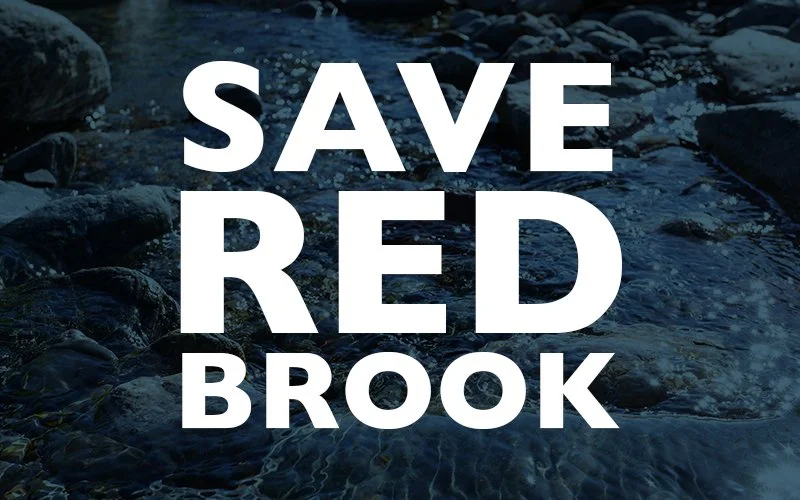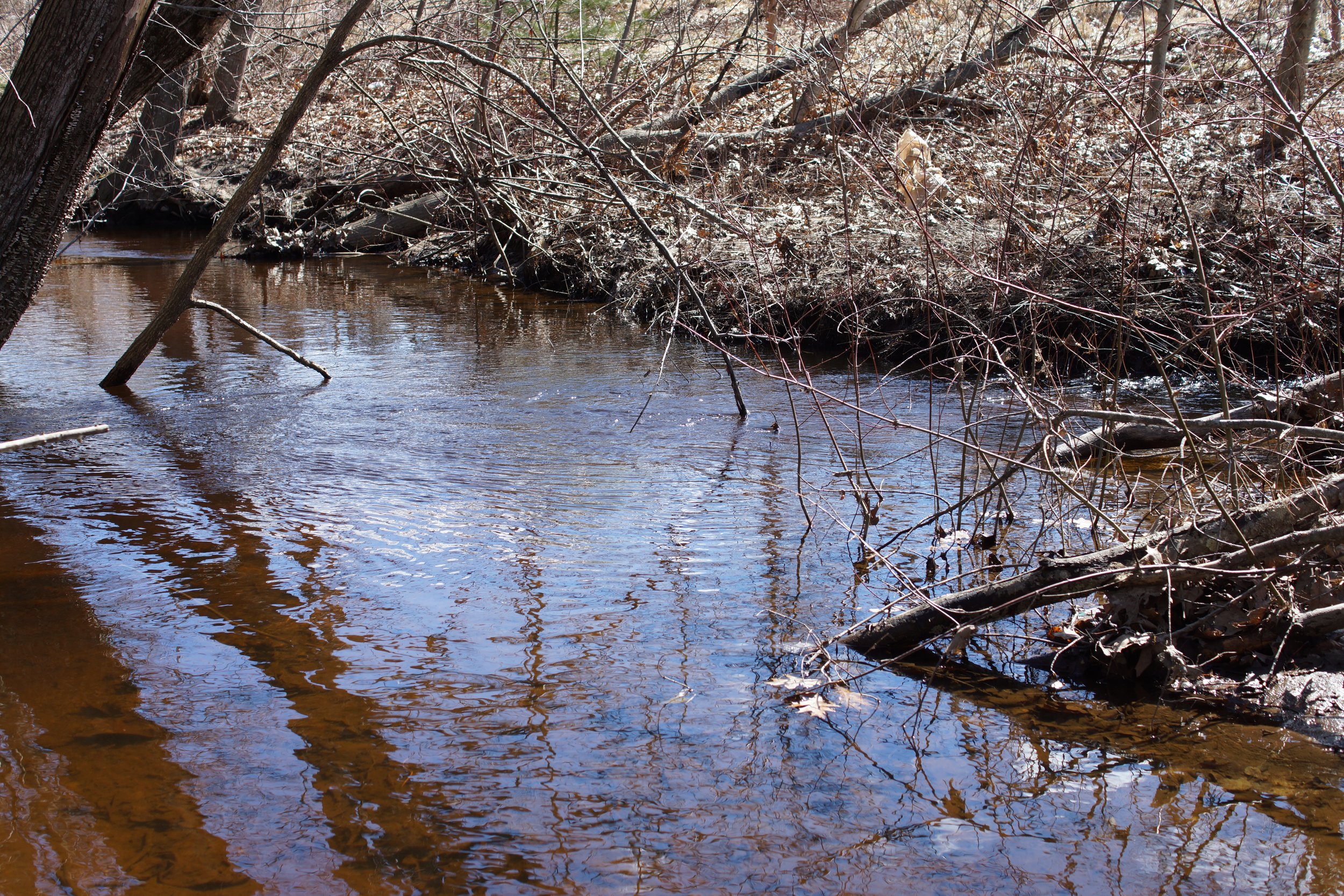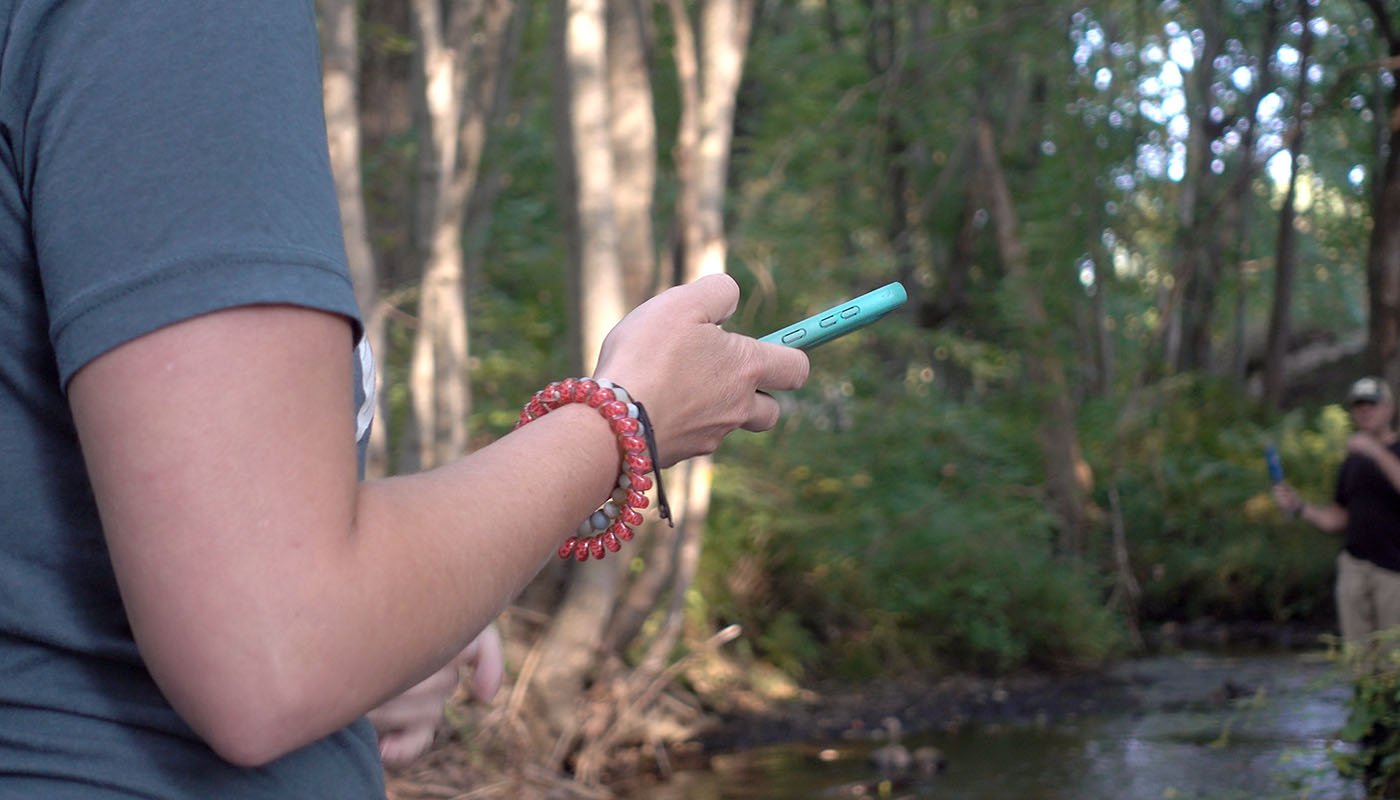Red Brook needs our help.
RED BROOK supports a thriving brook trout population — the last of its kind in the Portland area.
But Red Brook is under threat from the Maine Turnpike Authority’s proposed Gorham Highway Expansion. The current location being proposed for the highway would sit almost on top of the headwaters — significantly impacting water quality and temperatures that would be lethal to this wild, self-sustaining population of brook trout.
Sebago TU is part of a coalition that believes the new roadway does more harm than good, and we’re working towards other solutions.
UPCOMING EVENTS FOR RED BROOK
Wednesday, September 18th — Scarborough Town Councail + MTA Workshop
MTA Presentation 5:30 PM
Public Comment & Town Council Deliberations 7:00 PM
Location: Council Chambers at the Scarborough Municipal Building, 259 U.S. Route 1, Scarborough, ME 04074
USE YOUR VOICE
If you live in any of the communities currently part of the agreement with MTA’s planned highway, we encourage you to contact your local town council to let them know you don’t support this project and the long list of negative impacts it will have on the environment and water quality.
HERE’S WHAT WE KNOW…
The MTA’s proposed highway will definitely impact this ecosystem.
Initial studies done by Maine Inland Fisheries & Wildlife (IFW) identify this as a unique habitat that's already under pressure, and the outcomes of their very limited study in 2022 confirm the development as proposed will have lethal impacts on these fish.
Millions of dollars have already been spent on work to improve Red Brook over the last decade, and this new highway development would undo all that work.
MDOT IS AT WORK TO IMPROVE FISH ACCESS.
There is work underway to install fish passage at a culvert running under I-295 as part of efforts to allow wild brook trout to access the upstream waters of Red Brook.
MDOT’s fish ladder being installed | September 2024
This is part of the much needed work to restore this watershed — and the MTA’s planned highway would undo these efforts by increasing water temperatures and introducing more polluntants into Red Brook.
What we want to happen.
We want the MTA, state, and local municipalities to pause the Gorham Highway Expansion project until more thorough studies can be done. No permit applications should be submitted until a detailed plan is communicated to the public, including:
An acknowledgment of this unique habitat, and the MTA/DOT’s commitment to protecting it.
Detailed plans for how they plan to reduce the impacts on Red Brook’s water quality and trout habitat — based on what these trout need to continue thriving (see below).
Plans and schedule for regular water quality monitoring throughout any construction, and into the future to understand changes in the brook.
Funds in place to support Red Brook’s water quality if/when the highway’s impacts are seen on monitoring results.
There's also a larger coalition opposed to the Gorham Highway Expansion project as it is proposed. You can learn more and sign a petition here: Mainers for Smarter Transportation
The MTA’s maps fail to identify the proximity of the proposed highway to Red Brook and wetland areas that are already shrinking in these areas.
What Red Brook needs.
In conversation with IFW biologists, environmental consultants, and others — we've outlined the core elements this trout population and Red Brook will need to survive.
An undisturbed vegetative buffer of at least 100-feet from the edge of the developed area. The more distance between the highway and this watershed, the better.
No winter construction — sediment controls do not work in the winter, and this is a direct threat to Red Brook’s water quality.
The MTA needs to ensure the connection to aquifers that supply clean, cold water to Red Brook are not interrupted or degraded, both during construction and afterward.
We met with MTA and their engineering firm in April, 2024 — and as of September 2024, there are still no specific designs for this highway, any stream crossings, or stormwater management.
The MTA has had decades to formalize a plan for this highway, and we think the lack of designs/engineering and the clear impacts to water quality — paired with the minimal improvements to traffic — mean that this project should not move forward.
Red Brook Cleanup Event | May 4th, 2024
MORE THAN JUST WORDS.
Sebago TU and Maine Fly Guys organized a clean up day for sections of Red Brook impacted by I-295 and the Maine Mall parking lots — bringing together members of the surrounding communities to haul away 1400+ pounds of trash and debris.
This is what we’re trying to avoid in the upper sections of Red Brook, which are currently surrounded by undisturbed forest and clean, cold source waters.
Red Brook provides a unique (and much needed) research opportunity.
Between DEP, IFW, and local municipalities, there have been piecemeal studies and samples from Red Brook collected over the last 20 years — but data is lacking about how a construction project like this impacts a watershed over time.
Teams from Trout Unlimited, Casco Bay Estuary Partnership, and the City of South Portland testing equipment on Red Brook.
The Sebago Chapter of Trout Unlimited has been awarded a grant from the Casco Bay Estuary Partnership to purchase equipment for a long-term water quality study on Red Brook.
This is one part of what we hope will turn into a large research project with academic and environmental partners. Our goal is to fully understand the ecosystem as it currently exists, as well as to document any changes during and after construction to have a comprehensive and clearly informed look at how this type of construction impacts a habitat like this.
Our research will follow EPA guidelines, and focus on water quality, aquatic insects, fish, and other factors to help inform how we can protect Red Brook as well as other ecosystems throughout Maine well in the future.















